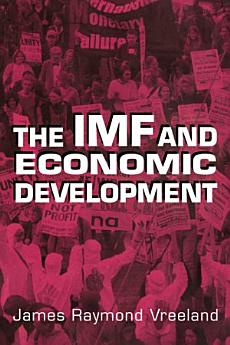The IMF and Economic Development
мар 2003. · Cambridge University Press
E-knjiga
219
Stranica
reportOcene i recenzije nisu verifikovane Saznajte više
O ovoj e-knjizi
Why do governments turn to the International Monetary Fund (IMF) and with what effects? This book argues that governments enter IMF programs for economic and political reasons, and finds that the effects are negative on economic growth and income distribution. By bringing in the IMF, governments gain political leverage - via conditionality - to push through unpopular policies. Note that if governments desiring conditions are more likely to participate, estimating program effects is not straightforward: one must control for the potentially unobserved political determinants of selection. This book addresses the selection problem using a dynamic bivariate version of the Heckman model analyzing cross-national time-series data. The main finding is that the negative effects of IMF programs on economic growth are mitigated for certain constituencies since programs also have distributional consequences. But IMF programs doubly hurt the least well off in society: they lower growth and shift the income distribution upward.
Ocenite ovu e-knjigu
Javite nam svoje mišljenje.
Informacije o čitanju
Pametni telefoni i tableti
Instalirajte aplikaciju Google Play knjige za Android i iPad/iPhone. Automatski se sinhronizuje sa nalogom i omogućava vam da čitate onlajn i oflajn gde god da se nalazite.
Laptopovi i računari
Možete da slušate audio-knjige kupljene na Google Play-u pomoću veb-pregledača na računaru.
E-čitači i drugi uređaji
Da biste čitali na uređajima koje koriste e-mastilo, kao što su Kobo e-čitači, treba da preuzmete fajl i prenesete ga na uređaj. Pratite detaljna uputstva iz centra za pomoć da biste preneli fajlove u podržane e-čitače.






